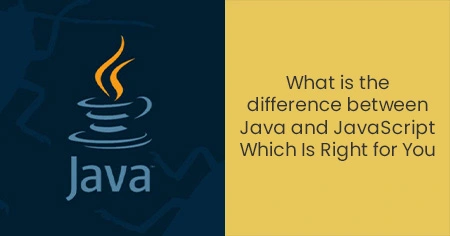According to a survey by Stack Overflow, Java is the sixth most popular language, used by 33.27% of the world's population. Meanwhile, JavaScript is the most popular programming language, with 65.36% of the population using it.
Java and JavaScript are the most popular programming languages in the software and web development industries. Some believe they have a connection because of their similar names. Both languages are written and executed differently and used for various goals.
Because of their similar names, everyone wonders about the difference between Java and JavaScript. To help you understand the differences, we have created this comprehensive yet quick guide with a full comparison.
The following stats say that:
As of 2024, JavaScript (JS) is a popular programming language among software developers worldwide, with nearly 63.61% claiming to use it, compared to 30.55% who used Java. (https://www.statista.com/).

However, both technologies are in top positions regarding the best programming languages for web app development.
Usage of Both Languages in Website Development
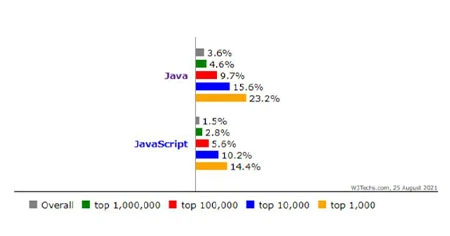
- Java and JavaScript are used on 4.7% and 3.1% of all websites.
- JavaScript and Java are used by 5.4% and 6.9% of all websites ranked in the top one million, respectively.
- Both Java and JavaScript are used by 12.9% and 26.0% of all web apps that rank in the top 1,000, respectively.
- 10.8% and 12.4% of all top 100,000 websites use Java and JavaScript programming languages, respectively.
- Java and JavaScript are used by 14.1% and 19.0% of all top-10,000 sites, respectively.
What is Java?
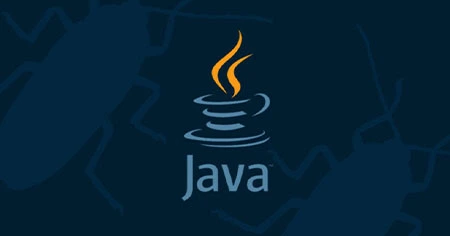
Java is a programming language that is object-oriented, network-centric, and multi-platform compatible. It is used as a computing platform and was developed by Sun Microsystems in 1995. Its ability to run on a virtual machine (a Java virtual machine) makes it platform-independent.
Some of the well-known companies which use Java include:
- Netflix
- Airbnb
- Uber
- Spotify
95% of businesses use it as their primary programming language. Furthermore, the Java language is central to the Android operating system, which runs most smartphones.
Advantages of Java
It is important to know why we should use Java. Let's look at some of Java's advantages:
- Object-oriented
The Java programming language includes all of the features of object-oriented programming, such as encapsulation, abstraction, inheritance, etc. These OOP concepts provide several benefits to the Java programming language, such as data redundancy prevention, improved security, simplified problem-solving, etc.
- Multi-Threaded
Java allows multiple threads to run concurrently within the same process. It is best suited for applications that want to run multiple tasks simultaneously.
- Platform-Independent and Portable
This is the most important benefit of Java programming. Java works on any platform, machine, or operating system. Java code can run on any platform with the installed Java Virtual Machine (JVM). This enables Java to create cross-platform applications that run on multiple platforms or applications.
- Secure and Reliable
Java's security manager limits access to system resources based on an application's permissions. This is how Java protects against malicious code from external systems.
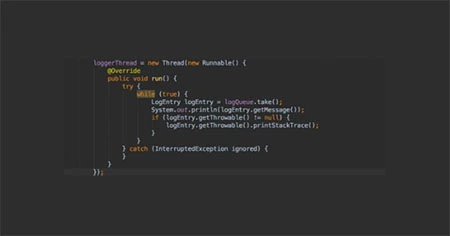
Disadvantages of Java
- Performance
Java's performance is slow due to additional compilation and interpretation tasks. Java consumes much memory, puts a heavy load on the throttle the CPU, and slows the language's performance and efficiency.
- Backup
Backup is a significant drawback of Java programming. Java can collect and store data but needs a strong facility to back up the data.
- Memory management
The garbage collector automatically collects unused and unnecessary items. It increases the processor's workload and time to complete a task.
Components of Java:
- It has a simple syntax and is easy to learn.
- Robust
- Platform Independent
- Secure
- Multithreading
- Java is Object-Oriented and follows OOP concepts like inheritance, abstraction, polymorphism, and encapsulation.
- Design Neutral
- Conveyed as projects can be intended to run on PC organizations.
- Elite
Salary: According to Salary.com, a Java developer can earn between $111,153 and $83,432, depending on skills, experience, and education.
What is JavaScript?

JavaScript is an object-oriented scripting language that helps create interactive web pages. It can insert dynamic text into ML. JavaScript is also known as the browser's language.
Just some of the other well-known companies which use JavaScript include:
- Groupon
- Microsoft
- Slack
- PayPal
JavaScript is mainly used in web applications and browsers but can also be utilized in software, servers, and embedded hardware controls. It is the most popular programming language among developers, and without it, we would not have useful and widely used web apps such as eBay and Google Maps.
Advantages of JavaScript
As the scripting language of choice for making websites interactive, JavaScript benefits include:
- Core technology of the web
Along with HTML and CSS, JavaScript is one of the web's core technologies, responsible for making websites interactive. This means you gain access to an active developer community and development ecosystem, which includes frameworks, libraries, and web development tools.
- Easy to learn
JavaScript is one of the first languages many people learned because of its simple syntax and ubiquitous as a core web technology. That means numerous tutorials, courses, and examples are available online.
- Event-Handling
An event refers to an action or occurrence in a system. For example, a user clicks on a button, and the system tells the user to respond to the button click event. In this case, clicking a button is an event that requires a subsequent action.
Event-driven programming involves waiting for events to occur before executing code in response. The JavaScript language relies heavily on event-driven programming. By handling and responding to events, JavaScript creates a user-friendly environment that dynamically updates and responds to user actions.
- Cross-platform compatibility
JavaScript, like Java, can run on various platforms, such as web browsers, servers, and standalone applications.

Disadvantages of javascript
Let's look at JavaScript's disadvantages to better understand the language's scope.
Face recognition is a simple process where you require any gadget that supports digital photographic technology. It sets up your image and the necessary data to create and record the facial pattern of the person to be identified.
- Time-consumption
JavaScript has varied, complex functionalities, and it can take a long time to convert into machine-readable code. This, in turn, reduces website speed and provides a bad user experience.
- Single-threaded
The JavaScript event loop runs in a single thread. While acceptable for most web applications that run in browsers, the language lacks built-in support for concurrency and multithreading.
- Front-end security
JavaScript is a client-side scripting language that runs code in the browser. It improves code security while also increasing source code visibility.
- Single point of failure.
Because JavaScript runs on a single event loop, a single bug can halt all JavaScript code on a web page.
Components of JavaScript:
- Case Sensitive Format
- Customer Edge Technology
- Approval of User's Input
- Statements Looping
- Else and IF Statement to perform consistent articulation
- Interpreter centered
- Object-centered Script Language
- Light Weight and Delicate
- Capacity to Perform In-build Function
- Handling Events
Salary:Salary.com says a JavaScript developer can earn between $118,767 and $96,705, depending on skills, experience, and education.
Similarities between Java and JavaScript
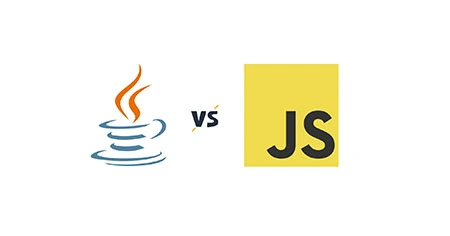
Java and JavaScript are not similar programming languages as they have different syntaxes. But there are similarities between JavaScript and Java: their codes (whether Java or JS) run on JVM (Java Virtual Machine).
There are some top-level similarities worth considering, especially if looking at web development when comparing Java to JavaScript.
Object-oriented programming (OOP): Both languages require the developer to write code describing objects and their relationships. By extension, both languages support techniques like encapsulation, polymorphism, and inheritance.
Back-end development: Both languages can be used on the server side. Java has long been used to power server-side applications like Apache, WebSphere, and JBoss. Node.js has become a starting point for JavaScript-powered servers.
Front-End Development: Both languages are suitable for front-end development. JavaScript can be embedded directly into HTML and used as a framework or library, while Java can be run as a Java applet.
C-like syntax: Java and JavaScript have a C-like syntax, so they share programming constructs with C, C++, and C#. This similarity makes it easier for programmers to transition between these languages.
Difference between Java and JavaScript:
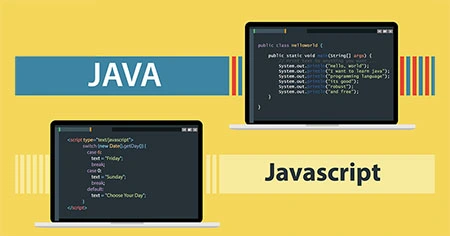
The main difference between Java and JavaScript is that Java is an OOP programming language, while JavaScript is an OOP programming script.
In the table below, you can learn more about the differences between Java and JavaScript.
| Parameter | Java | Javascript |
|---|---|---|
| Developed By | Java is an Object-Oriented language developed by James Gosling from Sun Microsystems | Javascript, originally called LiveScript, was developed by NetScape |
| Syntax | Data types in Java need to be declared. | Data Types in JavaScript do not need to be declared. |
| Extension | It has a file extension “.Java”. | It has file extension “.js” |
| Key Features |
|
|
| Code type | Object-oriented. Applets consist of object classes with inheritance. | It is object-based. Code uses built-in, extensible objects but not uses any classes or inheritance. |
| Language Type | Java is a class-based object oriented programming language. | JavaScript is a prototype-based scripting language. |
| Companies Using | Netflix, Airbnb, Google, etc. | Paypal, Microsoft, Uber, etc. |
| Process | Compiled on the server before execution on the client. | Interpreted (not compiled) by the client. |
| Type of language | Static | Dynamic |
| Requirements | To develop and run a Java Program, you need the entire Java Development Kit (JDK). | JavaScript only requires a text editor to write the code. |
Java and JavaScript: Which Is Right for You?
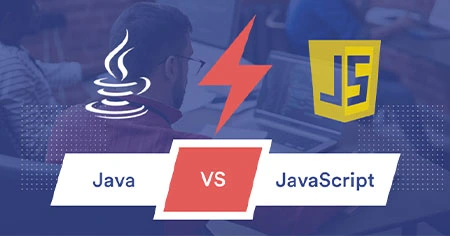
Now that we've covered the basics of both languages, including their differences, benefits, drawbacks, salaries, and use cases, the question that might be on your mind is which of these I should study first as a newbie programmer. The answer would be, "It depends.
The choice between Java and JavaScript is based on the developer's skills and the project's specific requirements and preferences.
If you are a beginner, you can start your career in this field by attending an online web development course with a certificate and placement.
JavaScript is a dynamically typed, client-side scripting language mainly used to create interactive website elements, such as forms, dynamic content, and animations. JavaScript is also used on the server side, with the help of Node.js, and is used to create full-stack web applications.
On the other hand, Java is a statically typed, general-purpose programming language widely used in large-scale, enterprise-level applications such as enterprise, mobile apps, and desktops. Java strongly emphasizes security and stability, and many major corporations use it for their back-end systems.
Suppose you want to design for the web and specialize in front-end web development. In that case, start by learning JavaScript. Python is a robust and easy-to-learn alternative to JavaScript for back-end development, which is increasingly used for this purpose.
However, if you're interested in mobile app development, smart devices, the connected future, and the Internet of Things, Java would be your language.
Should I use JavaScript or Java for my next project?
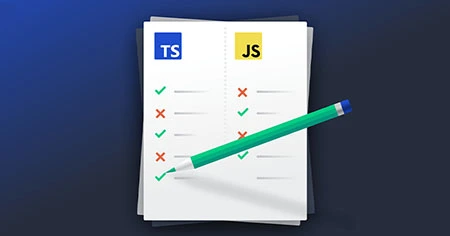
As with any language, the choice refers to what you're trying to build and your available resources. Java is a general-purpose language that can make anything, whereas JavaScript is still a web technology.
You should consider Java if your project involves…
- Android Apps
- Scientific Computing
- Enterprise Software
- Big Data Analytics
- Server-side technologies like JBoss, GlassFish, Geronimo, Apache, etc.
- General Purpose Programming of Hardware
Consider JavaScript if your project involves...
- Dynamic single-page applications (SPAs).
- Mobile App Development through React Native, Phone Gap, etc.
- Front-end technologies like AngularJS, ReactJS, Backbone.js, Ember.js, jQuery, etc.
- Server-side technologies like Express.js, MongoDB, Node.js, etc.




